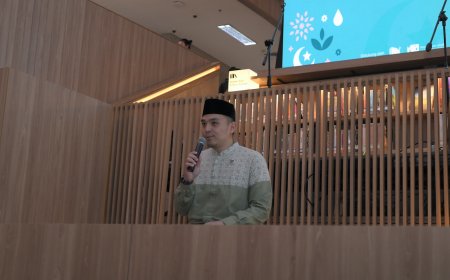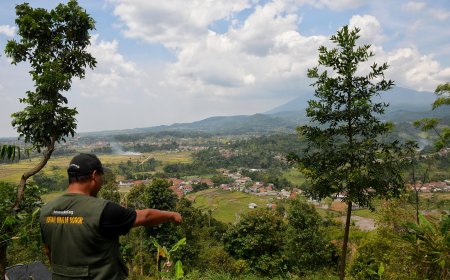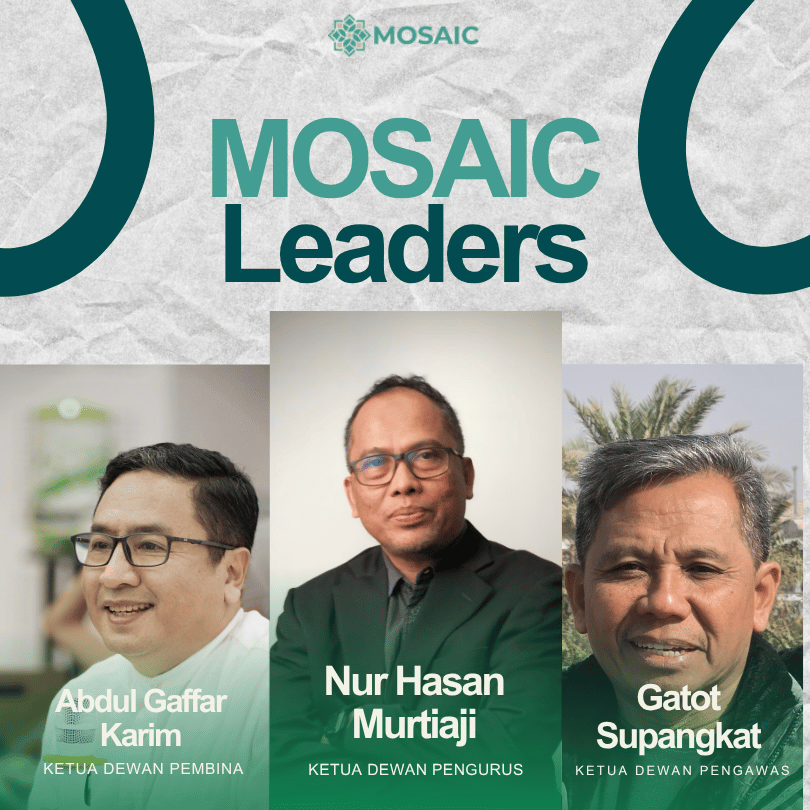Waste Charity from Brajan Village
The movement initiated by Ananto has been adopted by many mosques in Indonesia.
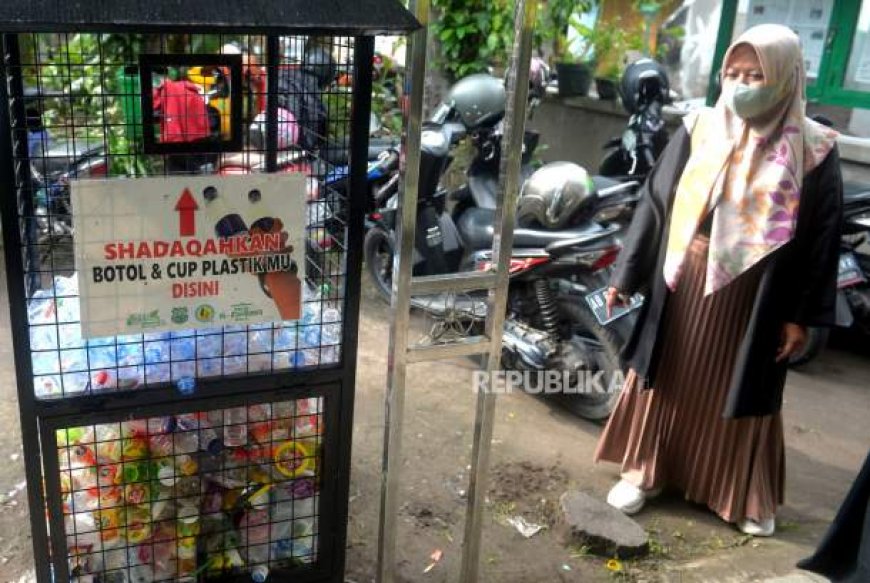
The black box, as tall as an adult man, was almost full of plastic bottles and cups. The screw iron designed as a barrier makes its occupants visible. Residents also know that the box is a medium for those who want to give alms through garbage.
The box was designed by Ustaz Ananto Isworo, a young preacher who serves as Chairman of the Prosperity Board of Al Muharram Mosque, Brajan Village, Bantul Regency, Yogyakarta. With the box, Ustaz Ananto invites residents to dispose of plastic waste. Once collected, the kilos of waste are sorted and sold to collectors. The proceeds will be used for social programmes in the neighbourhood. The movement initiated by Ananto has been adopted in many mosques in Indonesia. Ananto calls it the Garbage Alms Movement.
Ananto's struggle to initiate the GSS was not easy. When he moved to Brajan in 2005, he realised that his new neighbourhood was a shabby environment. The amount of rubbish in the village was not well managed. The dirty neighbourhood was exacerbated by many street children who often committed criminal acts. "They used to sleep in front of my house after getting drunk. They wake up in the morning," said Ananto when talking to MOSAIC.
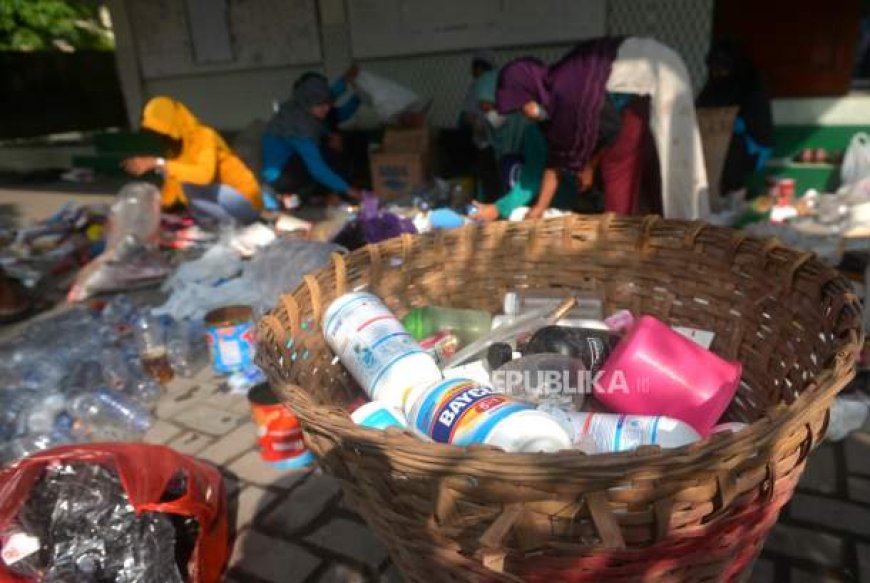
As a newcomer, Ananto could not immediately propose a clean-up programme in his village. Ananto started by approaching the local youth. After eight years of guerrilla work, he was slowly able to gain the sympathy of the community. Based on the needs of some children who could not afford to pay their tuition fees, Ananto then proposed a garbage alms in the mosque. Ananto faced many challenges from local residents. They wondered why almsgiving, which had been done with money, was done through garbage. They also objected to the mosque, which is supposed to be holy, being used as a place to collect garbage.
In fact, Ananto said, in Islam, the word alms has a broad meaning, not limited to money. He also cited an example of the Prophet Muhammad SAW sourced from Abu Hurairah Ra that removing obstacles on the road is part of charity.
"Every segment of human bone should be given alms every day at sunrise: doing justice to two people (reconciling) is alms; helping someone to ride his vehicle, guiding him, and lifting his luggage is alms, good speech is alms; saying good words is also included in alms. Similarly, every step of walking to pray is a charity. And removing an obstacle from the path is a charity." (HR Bukhari and Muslim)
Ananto also objects if the mosque is only used as a place of worship. In Ananto's perspective, the mosque has a social and even economic role so that its existence can be felt by the community. During the Prophet's era, the Prophet's Mosque even served as the centre of government and education. The Prophet even organised war strategies in the mosque. The mosque is also a place to collect zakat, infaq and alms from Muslims to be distributed to friends in need.
Therefore, Ananto's determination did not waver. With garbage alms, he showed that the mosque can be the centre of a community movement. He also wants to prove to the locals that even the poor can give alms. "So, I want to show people that no matter how poor they are, they can still give alms, namely by giving recyclable waste to the mosque," he said.
The funds from the waste collection from the movement are then returned to the community. The tuition needs of orphans and poor children can also be fulfilled. Gradually, the community believed that they could give alms with their rubbish. Ananto expanded his programme. First, scholarships for orphans and the poor, which was the pioneer of the GSS programme. Residents who felt that their children could be helped through waste alms began to participate in raising the GSS.
Next, alms for poor widows, which is Rp 50,000-Rp 100,000 per package once every three months. Over time, this programme is sometimes interspersed with government and private assistance. The third programme is health compensation for every underprivileged citizen who is hospitalised will receive IDR 500,000. Ananto also innovated that the waste donated is not only plastic waste. Unused items can also be donated to the mosque. "Electronics and motorbikes can be donated," he said.
Seeing the great benefits of this GSS, not only residents of Kampung Brajan and mosque youths participate in sorting waste at the mosque. Young people from outside the neighbourhood, such as university students, also take part, and the Waste Alms Movement is growing. To date, 50 mosques have joined the Indonesian Waste Alms Movement (Gradasi). The number is not much compared to the 740,000 mosques and musala in Indonesia. However, this movement continues to grow because it has been in four islands namely Sumatra, Java, Kalimantan and East Nusa Tenggara (Labuan Bajo).
Gradasi's presence in Indonesia is also strategic considering the high contribution of waste. During 2022, the Ministry of Environment and Forestry reported that there were 36.2 million tonnes of waste generated from 311 districts/cities throughout Indonesia. Of this amount, there is still 36 percent or 13 million tonnes that have not been managed. The high volume of waste cannot be separated from Muslims who are the majority in Indonesia with 229 million people.
Environmentally friendly
Environmentally friendly mosques are one of the Ministry of Religious Affairs' programmes this year. The ministry's Director of Islamic Religious Affairs Adib explained that his office is compiling mosques with several criteria such as child-friendly, diversity-friendly, dhuafa-friendly, disabled-friendly and environmentally friendly mosques. According to Adib, this programme is a form of independent approach regarding the potential of mosques from various available categories. For this reason, the Ministry of Religious Affairs is developing a friendly mosque application that can be filled in independently. "We are currently building the application. Later we will develop it so that the mosque has education, one of which is environmental love," said Adib.
He explained that mosques are an important element to deal with the impact of climate change in Indonesia. Moreover, many Muslims spend time at the mosque at least to pray five times a day. However, he admitted that the awareness of the congregation towards the concept of environmentally friendly mosques needs to be improved. For the record, there are still many mosques that are wasteful in water utilisation. Likewise, waste management is not done properly, especially when religious holidays arrive.
Adib hopes that the criteria for environmentally friendly mosques will become an example for the community so that it can be adopted in various regions. He revealed that the Ministry of Religious Affairs will amplify mosques that have practised environmental friendliness through awards along with other category-friendly mosques. "The public mindset does not fully understand what an environmentally friendly mosque looks like, but I believe this is a good and strategic way to campaign for environmental friendliness," he said.


